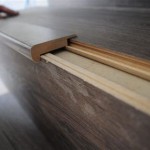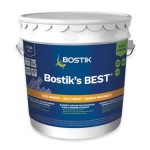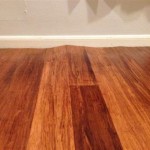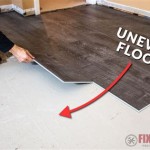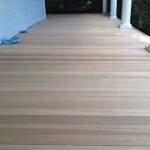Essential Aspects of Glue-Down Vinyl Plank Flooring
When it comes to vinyl plank flooring, you have two main options: glue-down or floating. While floating vinyl can be installed without adhesives, glue-down vinyl requires a strong adhesive to adhere to the subfloor. This extra step in the installation process can raise questions about its necessity.
To shed light on this topic, we will delve into the essential aspects of glue-down vinyl plank flooring, highlighting its advantages and disadvantages so you can make an informed decision for your flooring project.
Advantages of Glue-Down Vinyl Flooring
- Water Resistance: Adhesive creates a moisture barrier, making glue-down vinyl highly resistant to water damage. This makes it an excellent choice for areas prone to spills, such as kitchens and bathrooms.
- Durability: The adhesive bond between the vinyl and the subfloor provides superior strength and durability. It can withstand heavy foot traffic and furniture weight without separating or buckling.
- Stability: Unlike floating vinyl, which can shift and buckle under stress, glue-down vinyl is firmly secured to the subfloor, reducing the risk of movement or warping.
- Sound Absorption: The adhesive layer acts as an effective sound barrier, minimizing noise transmission from footfalls and other impact sounds.
Disadvantages of Glue-Down Vinyl Flooring
- Installation Complexity: Installing glue-down vinyl is a more complex process than installing floating vinyl. It requires a strong adhesive and careful application to ensure a secure bond.
- Subfloor Preparation: The subfloor must be perfectly level and smooth for successful glue-down vinyl installation. Any imperfections can affect the adhesive bond and cause problems down the road.
- Removal Difficulty: If you ever need to remove glue-down vinyl, it can be a time-consuming and labor-intensive process due to the strong adhesive bond.
- Cost: Glue-down vinyl flooring, including materials and professional installation, is generally more expensive than floating vinyl.
When to Choose Glue-Down Vinyl Flooring
Glue-down vinyl plank flooring is ideal for:- Areas prone to water spills and moisture
- High-traffic areas that require durability
- Locations where sound reduction is essential
- Subfloors that are level and smooth
When to Choose Floating Vinyl Flooring
Floating vinyl plank flooring is a better option for:- Low-budget flooring projects
- Easy and quick installation
- Subfloors with minor imperfections
- Rooms where moisture or durability is not a significant concern
Conclusion
Glue-down vinyl plank flooring offers superior water resistance, durability, stability, and sound absorption. However, it requires a more complex installation process and is more expensive than floating vinyl. When choosing between the two, consider the specific requirements of your space and budget to determine which option is best for you. A professional flooring contractor can assist you in making an informed decision and ensuring a successful installation.
Floating Vinyl Plank Flooring Vs Glue Down 99cent Floor

Does Vinyl Flooring Need To Be Glued Down Thediyplan

Glue Down Vs Floating Lvp Which Is Better Whole Cabinet Supply

How To Repair Luxury Vinyl Plank Flooring The Palette Muse

How To Repair Luxury Vinyl Plank Flooring The Palette Muse

How To Install Glue Down Vinyl Plank

Do I Need An Underlayment For Vinyl Flooring Lx Hausys

What S The Best Glue To Use For Vinyl Flooring Sprayidea

How To Install Glue Down Vinyl Plank

Luxury Vinyl Flooring Vs Glue Direct Wood
Related Posts

